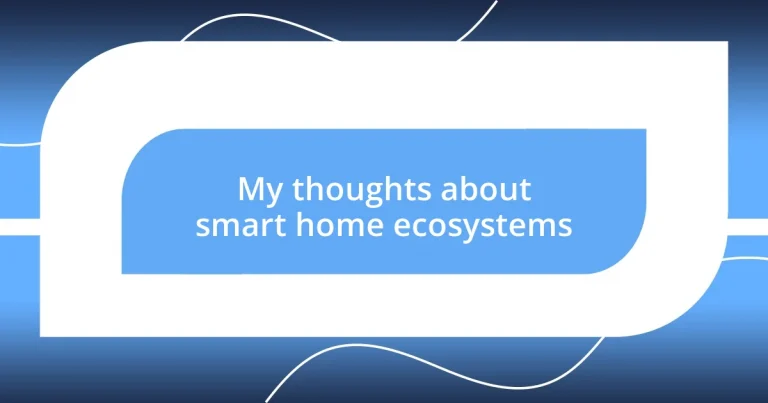Key takeaways:
- Smart home ecosystems enable interconnected devices that enhance convenience, energy efficiency, and security through automated controls.
- Choosing compatible devices is vital for a smooth smart home experience, with popular systems including Amazon Alexa, Google Nest, and Apple HomeKit.
- Security considerations are crucial; employing regular software updates, strong passwords, a robust network, and two-factor authentication can significantly enhance safety.
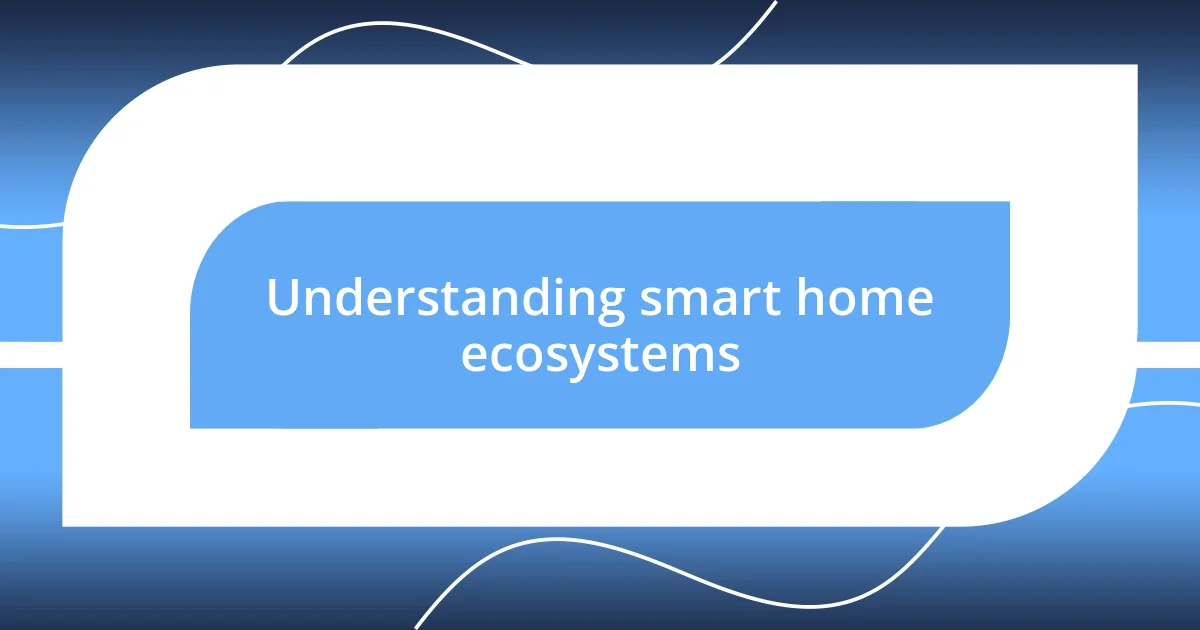
Understanding smart home ecosystems
Smart home ecosystems are essentially interconnected devices that communicate with each other to create a more efficient living environment. I remember the first time I set up my own smart home hub; it was like discovering a new layer of convenience in my daily routine. The ability to control lights, temperature, and security from my phone, or even with my voice, felt almost magical.
These ecosystems typically include a variety of devices like smart speakers, thermostats, cameras, and appliances, all working in harmony. Have you ever thought about how these devices can actually learn from our preferences? I’ve found that over time, my smart thermostat adjusted automatically to my routine, making my home more comfortable while saving energy. This adaptability not only simplifies life but also contributes to a more sustainable lifestyle.
Interoperability among devices is key to a successful smart home ecosystem. I often ponder the importance of choosing products from compatible brands; I once struggled with a mismatch between my smart lock and the home assistant I had. This experience highlighted how crucial it is to consider compatibility while building your smart home setup. It’s essential for smooth operation and to truly reap the benefits of a connected home.
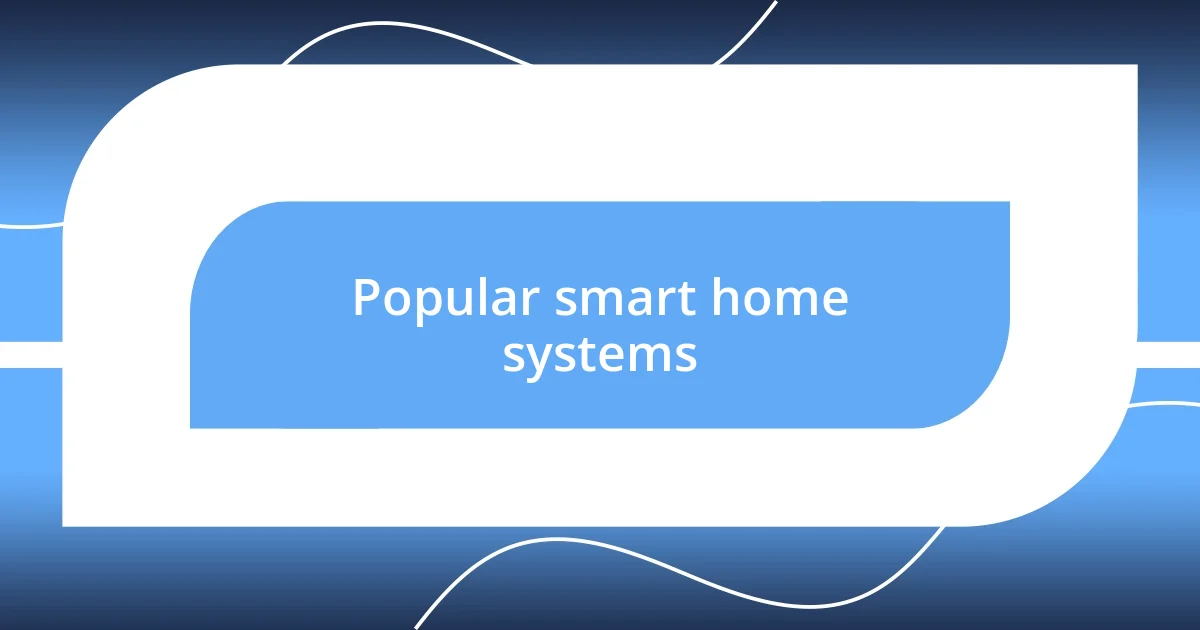
Popular smart home systems
When exploring popular smart home systems, it’s fascinating to see how brands compete and innovate. I’ve delved into various systems, and I must say, Google Nest and Amazon Alexa consistently capture my attention. Each has its strengths, like voice recognition and compatibility with a wide range of devices, which I found invaluable when expanding my smart home setup.
Here are some leading smart home systems that have gained traction:
- Amazon Alexa: Known for its vast device compatibility and advanced voice recognition.
- Google Nest: It offers seamless integration with Google services and intuitive controls.
- Apple HomeKit: I appreciate its robust security features and streamlined user experience for Apple enthusiasts.
- Samsung SmartThings: This system is versatile and supports a network of devices from various brands.
- Philips Hue: A favorite for lighting, providing customizable smart lighting solutions that truly elevate the ambiance of any room.
I remember when I first integrated Philips Hue lights; the transformation of my living space was incredible. The ability to adjust lighting with a simple command or app was thrilling, making ordinary moments feel special.
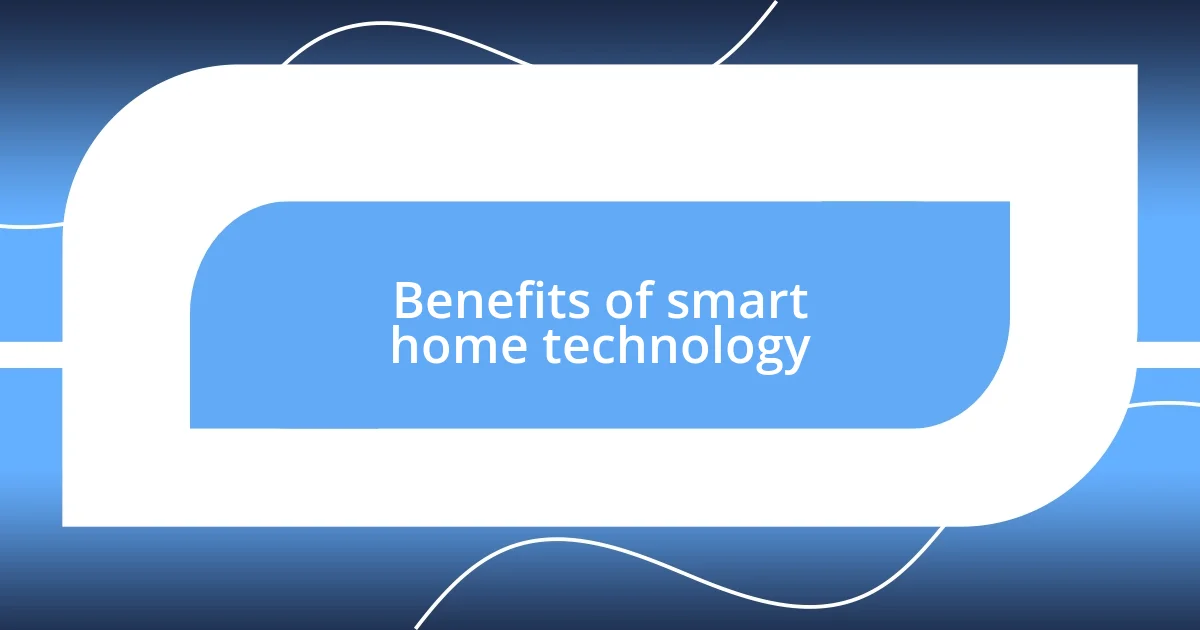
Benefits of smart home technology
Smart home technology brings a level of convenience that’s hard to match. Imagine being able to arrive home and have the lights turn on automatically while your thermostat adjusts to your preferred temperature. I recall one instance where I walked into my house after a long day, and everything was perfectly set up without me having to lift a finger. It felt like my home was welcoming me back. That sense of ease not only enhances my daily routine but also provides reassurance that things are running smoothly even when I’m busy or away.
Another compelling benefit is the potential for energy savings. Smart devices are designed to be efficient, and I’ve seen this firsthand with my energy bills. My smart plugs help me monitor energy usage and turn off devices when not in use, which significantly cuts down on waste. Once, I forgot to turn off a few lights before leaving for the weekend. With my smart home system, I quickly remedied that from my phone. It’s gratifying to know I’m not just saving money but also contributing to environmental sustainability.
In terms of security, smart home technology offers peace of mind. My security cameras and motion sensors provide alerts when unusual activity is detected, allowing me to monitor my home remotely. I had a moment of panic one evening when I thought I saw something suspicious outside. A quick check on my app showed everything was okay. The ease of access and control means I feel like I have a guardian watching over my home, which adds an invaluable layer of confidence in my safety.
| Benefit | Description |
|---|---|
| Convenience | Automated control of devices enhances daily routines. |
| Energy Savings | Smart devices help monitor and reduce energy consumption. |
| Security | Remote monitoring provides peace of mind. |
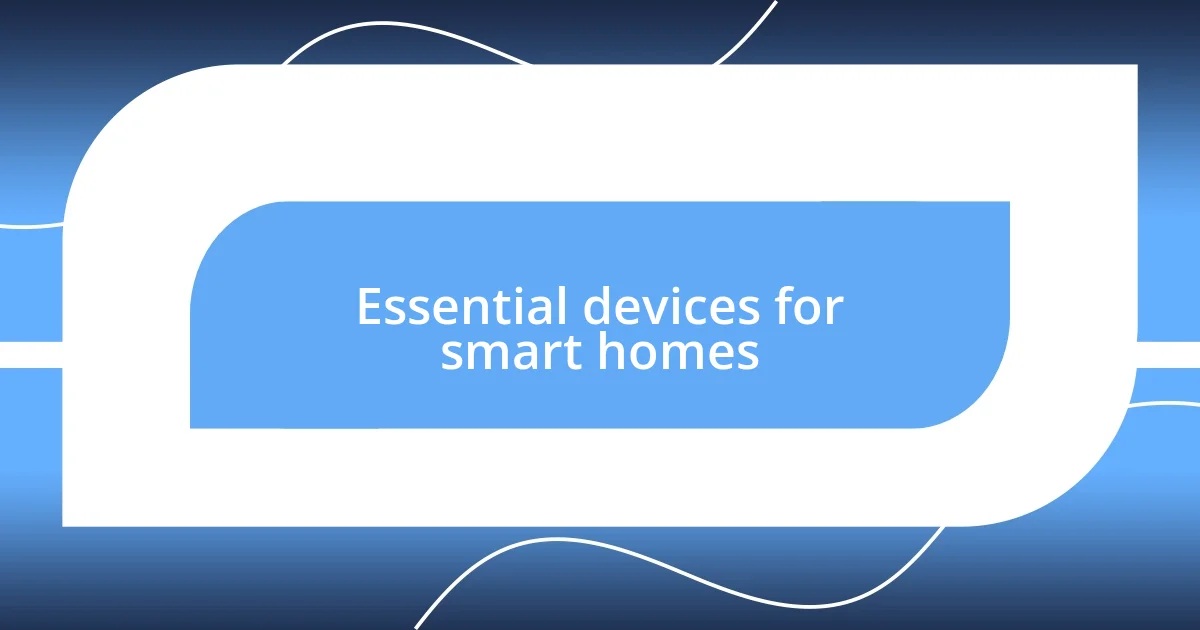
Essential devices for smart homes
When it comes to essential devices for a smart home, I find that a smart hub is the backbone of the whole setup. This little device connects all your smart gadgets, allowing them to communicate seamlessly. I remember the first time I set mine up; it felt like all my devices were speaking the same language for the first time. Can you imagine the efficiency when everything works in harmony, responding to your commands without a hitch?
Smart lights are also a game changer. I can’t tell you how many times I’ve walked into a room and felt pleasantly surprised by the ambiance just being perfect, all thanks to my automated lighting schedule. The shades of light can shift throughout the day, matching the natural light and even helping with relaxation in the evening. It’s as if my home has learned my habits over time, and the feeling is simply magical.
Of course, let’s not overlook smart security devices, which have made a remarkable difference in my peace of mind. Earlier this year, I was on vacation, and I received an alert about motion detection at my front door. Instead of panicking, I simply opened my app and saw a friendly package delivery person. I felt empowered knowing I could check in anytime, regardless of where I was. Isn’t it nice to feel secure and connected at all times?
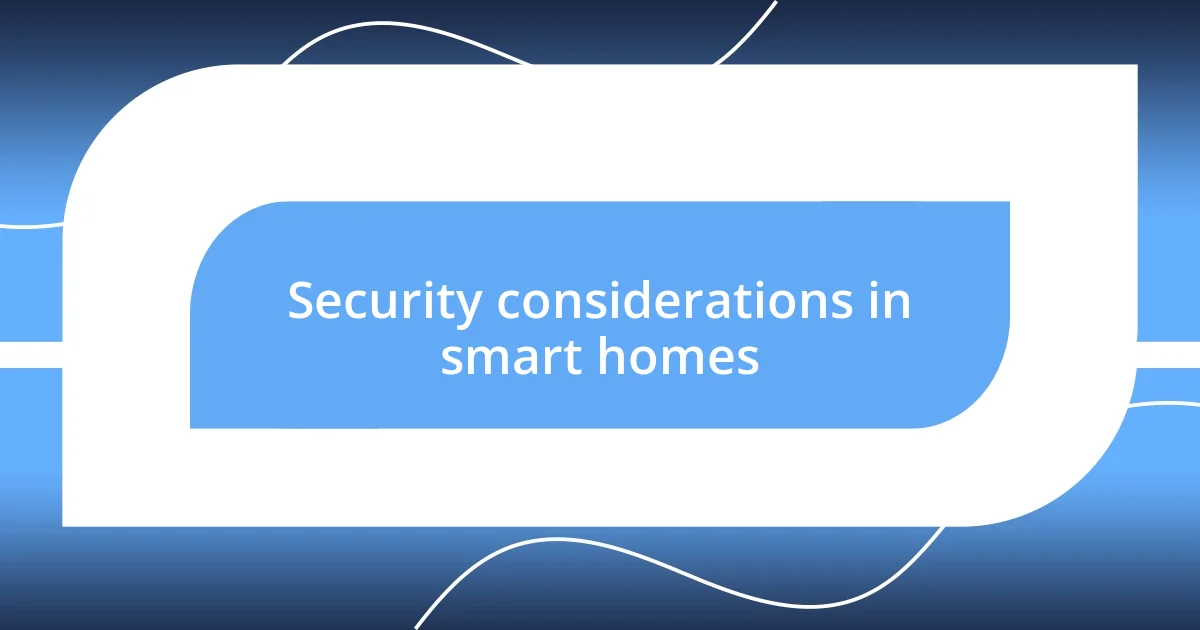
Security considerations in smart homes
Security is a crucial consideration for anyone considering a smart home ecosystem. While the convenience of devices is appealing, I’ve learned to approach security with caution. A few months ago, I read about a neighbor whose smart doorbell was hacked. It made me rethink the importance of regular software updates and strong passwords on all devices. Have you also considered how vulnerable your devices might be?
One thing I can’t stress enough is the significance of a robust network. I recently upgraded my Wi-Fi to a mesh system, which enhanced both speed and security. This change allowed me to set up a separate network for my smart devices, minimizing the risk of those devices being exploited. It felt liberating to know my personal data was better protected, and it’s a small step everyone can take for added peace of mind.
Lastly, using two-factor authentication (2FA) has become a non-negotiable for me. I vividly remember the first time I set it up on my smart camera. I received an alert and had to confirm my identity before accessing the feed. This added layer of security made me feel like I was taking control of my home defense. In a world where cyber threats are more common, I genuinely believe that 2FA is a practical and effective tool to safeguard your smart home. How do you ensure your devices are secure? It’s worth reflecting on, isn’t it?











